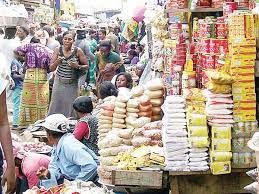The United Nations has again predicted that 82 million Nigerians, about 64 per cent of the country’s population, may go hungry by 2030. The world body, therefore, have urged the Nigerian Government to tackle climate change, pest infestations, and other threats to agricultural productivity to curb the threat.
The prediction comes in the wake of unending hike in food prices in the country in the last couple of months.
Recall that the National Bureau of Statistics, had put Nigeria’s food inflation rate at a record high of 40.66 per cent in May 2024. Surpassing the April’s 40.53 increase.
According NBS, This surge represents the largest year-on-year increase in food prices since records began in 1996.
“Historically, food inflation in Nigeria has averaged 13.42 per cent, with the lowest point of -17.50 per cent in January 2000.
“In 2023, the Food and Agriculture Organization, FAO, predicted that no fewer than 2.6 million Nigerians will face food crisis. It stated that Borno, Sokoto and Zamfara States, and the FCT may face a food crisis between June and August 2024.
According to a government-led Cadre Harmonisé analysis released in March, 2024, approximately 4.8 million people in Borno, Adamawa and Yobe States are experiencing severe food insecurity. The highest level in seven years.
Also, as Nigerian workers commemorated the 2024 May Day, Organized Labour expressed concern about the country’s rising food prices and fuel scarcity. Labour stated that the current situation threatened the survival of workers.
Also, a Senior Advocate of Nigeria, SAN, Olisa Agbakoba, recently warned that a hunger riot might soon break out in Nigeria. He, therefore, called on the Federal Government to act fast.
Speaking recently at the launch of CropWatch in Abuja, the Resident Humanitarian Coordinator of the Food and Agriculture Organization, FAO, represented by one of the UN officials, Taofiq Braimoh, expressed concern.
He said, “The Government of Nigeria, in collaboration with others, conducts an annual food security survey. This year’s results are alarming: approximately 22 million Nigerians will face food insecurity in 2023. And around 80-82 million are at risk of severe food insecurity by 2030.
He noted that, “Nigeria, like many countries, grapples with food insecurity, climate change, unreliable water patterns and pest infestations. And also other threats to agricultural productivity.
“As an agrarian society, our farms’ success directly impacts food availability for our population. Leveraging technology is crucial to strengthening our agriculture sector and ensuring food security.”
Braimoh stressed that satellite-based crop monitoring provided real-time data on crop conditions. This enable farmers and policymakers to make informed decisions and optimize agricultural practices.
He, therefore, noted that the technology could help expedite the accomplishment of sustainable development goals in food and agriculture.
source: PUNCH
Follow us for more news on our WhatsApp News Channels @
https://whatsapp.com/channel/0029VaC505jB4hdZ5Yx9g82U
![]()

